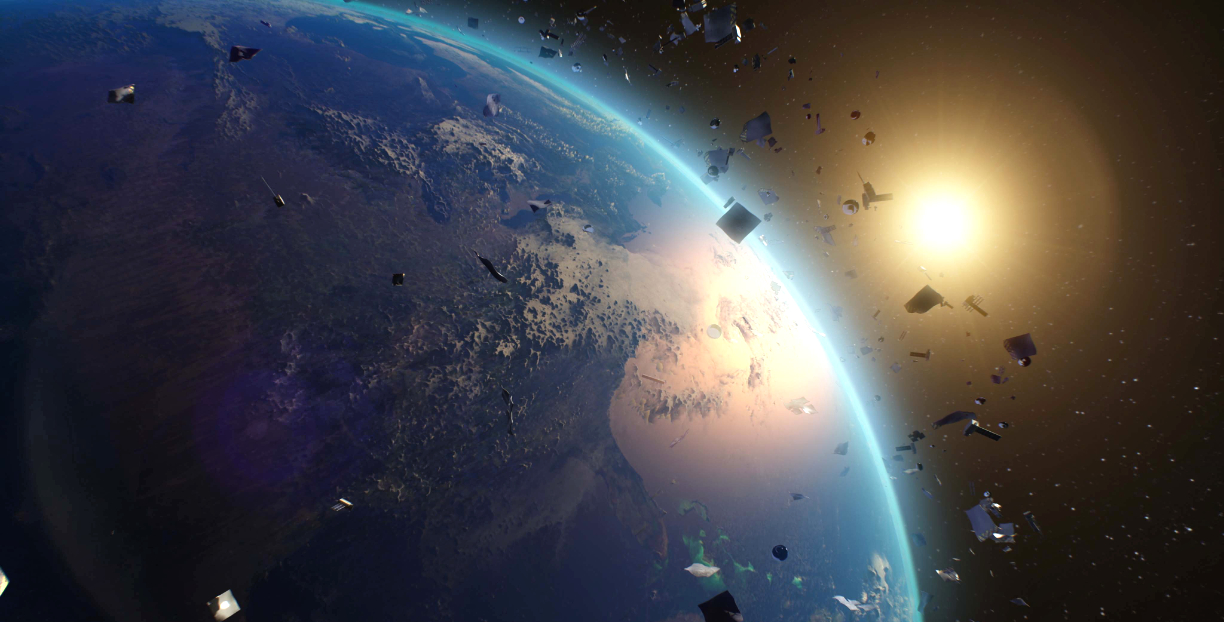Space traffic management is a must for space sustainability.
Discussions around space domain awareness have, once again, been pushed to the forefront recently, especially with Russia’s recent launch of their ASAT missile that created swathes of debris, as well as Chinese officials releasing a statement of a near miss between their space station and a Starlink satellite.

For years, the SDA has called for a coordinated approach to Space Traffic Management (STM), however local regulation, as well as political and financial landscapes, deliver significant challenges to centralized systems. Public office led STM services have been available for years; however, many question their suitability for meeting flight safety need for operators.
At times, the data and systems are not accurate enough to provide effective Space Situational Awareness (SSA) and collision risk mitigation solutions during the entire satellite life-cycle (launch phase, on-orbit operations of spacecraft, and end-of-life de-orbit operations). Additionally, the political landscape adds complexity to both uptake and data sharing. With the space industry expanding at an exceptional rate, how can the industry strike the balance between political accountability and financial responsibility in regards to STM? And, is it realistic to expect a global, industry-wide approach?
Space Debris Continues To Challenge The Industry
Perhaps the issue most associated with SSA, debris continues to be a growing problem within space. In the last year, the industry has had to measure the impact of an ASAT missile colliding with a satellite, with more than 1,500 pieces of debris traced from that incident alone.
Both deliberate and non-deliberate on-orbit collisions have huge ramifications for other space users. With the use of space — especially in LEO — becoming increasingly busy, this is something that must absolutely be taken seriously. Important technologies continue to be developed to improve the industry’s tracking capabilities; however, such solutions remain limited. It is still impossible to track very small pieces of debris. This is significant, as even a piece of debris as small as 20 cm. could inflict severe damage to an active satellite. Additionally, we are seeing new approaches to space debris removal that could potentially help mitigate the debris problem.
Both tracking and removal are hugely important, but we must not lose sight of the goal; to stop contributing to the problem. Each space user has a responsibility to ensure that satellites are carefully launched, managed and decommissioned without leaving debris in orbit and governments must take a role in regulating this challenge.
Is Technology Or Funding Holding Us Back?
STM is an integral part in managing space sustainability. It is clear that we must continue to improve tracking of smaller objects and orbit determination accuracy, as well as data sharing capabilities, in order to manage on-orbit safety. However, it is important to understand the current roadblocks facing the industry when implementing resilient systems. Public offerings are seen by many as limited, but what are the alternatives?
STM data systems are not limited by the capability of technology; modern systems, including the use of sensors, can produce highly accurate and timely analysis of data; however, this is a complex matter. Developing and maintaining an accurate catalog of space objects on a large scale is costly when considering the sheer scale of the industry’s use of space, therefore a close collaboration between all players is required to minimize the costs.
Without appropriate investments in STM systems and data sharing, the use of advanced algorithms, data collection, sensor use, and data processing will continue to be limited and efforts (and, thus, budgets) will be duplicated. Many space users are willing to contribute financially to robust STM methods but a lack of industry-wide cohesion will have a detrimental effect on the accuracy of their solutions.
Shouldn’t all space users have a responsibility to space safety? If we, as an industry, want to maximize the potential of space, we must focus on its sustainability and prioritize STM in a collaborative approach. As we see huge growth within the space industry, we must also see development being safely made within flight systems.
Regulation + STM
One avenue to consider when mulling over the complex challenge of STM is the regulatory aspect of space governance. Regulatory bodies clearly hold influence over the matter of space sustainability; however, it raises political challenges in terms of STM management.
In an ideal world, operators, regardless of where they are based, would have a responsibility to feed data into a central system. This would provide highly accurate data and financial support to deliver an extensive and sophisticated system.
Politically, data sharing is far more challenging; inter-governmental hesitancy surrounding public services is to be expected. Additionally, a coordinated regulatory approach delivers its own challenges; a heavy-handed regulatory method could see entire countries withdraw from agreements altogether.
Striking the balance is critical to managing space sustainability — there must be a global agreement that ensures that all space users adhere to best practices. A question is also raised regarding funding. Should governments be financially responsible for STM services? STM must be a priority for governments and providing funding for STM services will play a significant role in maintaining future use of the space domain.
Are centralized STM services feasible? The collaboration of public funding for developing and maintaining a Global Space Objects catalog based on data fusion, and the use of a central private system processing the catalogue data, could deliver a compromise to the political challenges being faced within data sharing.
We know that private organisations have the capabilities to provide monitoring and data processing to mitigate on-orbit collisions. A cohesive, global approach to STM funding would allow the creation and management of sophisticated central STM systems.

Space sustainability is a global issue; once damage is caused, it will impact every user in space. Governments must agree to funding STM solutions and prioritize a light-touch regulatory method to ensure that we can continue to maximize opportunities in space.

Without prioritizing the space domain, we run the risk of severely limiting its potential. A global approach to the regulation and the funding of STM systems would elevate our use of space and safeguard its future use.
www.space-data.org
Author Pascal Wauthier is the Chairman and Executive Director of the Space Data Association

